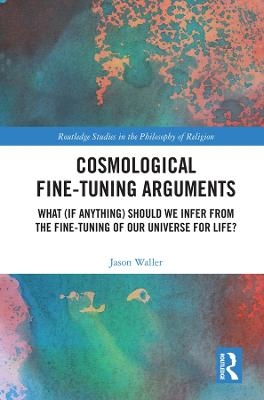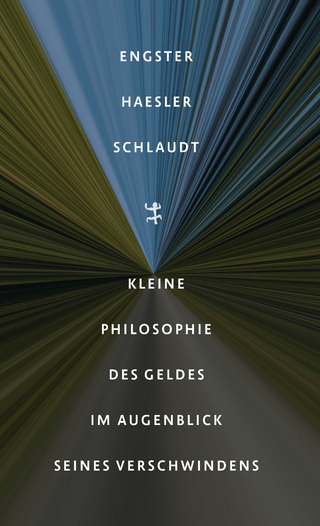
Cosmological Fine-Tuning Arguments
What (if Anything) Should We Infer from the Fine-Tuning of Our Universe for Life?
Seiten
2019
Routledge (Verlag)
978-1-138-74207-9 (ISBN)
Routledge (Verlag)
978-1-138-74207-9 (ISBN)
This book investigates the debates and questions raised by cosmological fine-tuning. Waller argues that the only plausible explanation for the fine-tuning of the actual world is the existence of some kind of God-like-thing.
If the physical constants, initial conditions, or laws of nature in our universe had been even slightly different, then the evolution of life would have been impossible. This observation has led many philosophers and scientists to ask the natural next question: why is our universe so "fine-tuned" for life? The debates around this question are wide-ranging, multi-disciplinary, complicated, technical, and (at times) heated. This study is a comprehensive investigation of these debates and the many metaphysical and epistemological questions raised by cosmological fine-tuning. Waller’s study reaches two significant and controversial conclusions. First, he concludes that the criticisms directed at the "multiverse hypothesis" by theists and at the "theistic hypothesis" by naturalists are largely unsuccessful. Neither of these options can plausibly be excluded. Choosing between them seems to turn on primitive (and so hard to justify) metaphysical intuitions. Second, in order to break the philosophical deadlock, Waller moves the debate from the level of universes to the level of possible worlds. Arguing that possible worlds are also "fine-tuned" in an important and interesting sense, Waller concludes that the only plausible explanation for the fine-tuning of the actual world is to posit the existence of some kind of "God-like-thing."
If the physical constants, initial conditions, or laws of nature in our universe had been even slightly different, then the evolution of life would have been impossible. This observation has led many philosophers and scientists to ask the natural next question: why is our universe so "fine-tuned" for life? The debates around this question are wide-ranging, multi-disciplinary, complicated, technical, and (at times) heated. This study is a comprehensive investigation of these debates and the many metaphysical and epistemological questions raised by cosmological fine-tuning. Waller’s study reaches two significant and controversial conclusions. First, he concludes that the criticisms directed at the "multiverse hypothesis" by theists and at the "theistic hypothesis" by naturalists are largely unsuccessful. Neither of these options can plausibly be excluded. Choosing between them seems to turn on primitive (and so hard to justify) metaphysical intuitions. Second, in order to break the philosophical deadlock, Waller moves the debate from the level of universes to the level of possible worlds. Arguing that possible worlds are also "fine-tuned" in an important and interesting sense, Waller concludes that the only plausible explanation for the fine-tuning of the actual world is to posit the existence of some kind of "God-like-thing."
Jason Waller is an associate professor of philosophy at Kenyon College in Gambier, Ohio. His previous books include the Routledge Philosophy Guidebook to Spinoza on Politics (2016) and Persistence through Time in Spinoza (2012).
Introduction: What Can We Make of These Strange Coincidences?
1. Four Preliminary Questions
2. Our Fine-Tuned Universe?
3. Learning from the Critics
4. Mapping the Logical Space
5. Our Fine-Tuned Actual World?
| Erscheinungsdatum | 14.09.2019 |
|---|---|
| Reihe/Serie | Routledge Studies in the Philosophy of Religion |
| Verlagsort | London |
| Sprache | englisch |
| Maße | 152 x 229 mm |
| Gewicht | 680 g |
| Themenwelt | Geisteswissenschaften ► Philosophie ► Metaphysik / Ontologie |
| Geisteswissenschaften ► Religion / Theologie | |
| Naturwissenschaften | |
| ISBN-10 | 1-138-74207-4 / 1138742074 |
| ISBN-13 | 978-1-138-74207-9 / 9781138742079 |
| Zustand | Neuware |
| Haben Sie eine Frage zum Produkt? |
Mehr entdecken
aus dem Bereich
aus dem Bereich
Buch | Hardcover (2024)
Matthes & Seitz (Verlag)
28,00 €
Über konstruktivistisches Denken in der Theologie
Buch | Softcover (2024)
Verlag Herder
58,00 €


